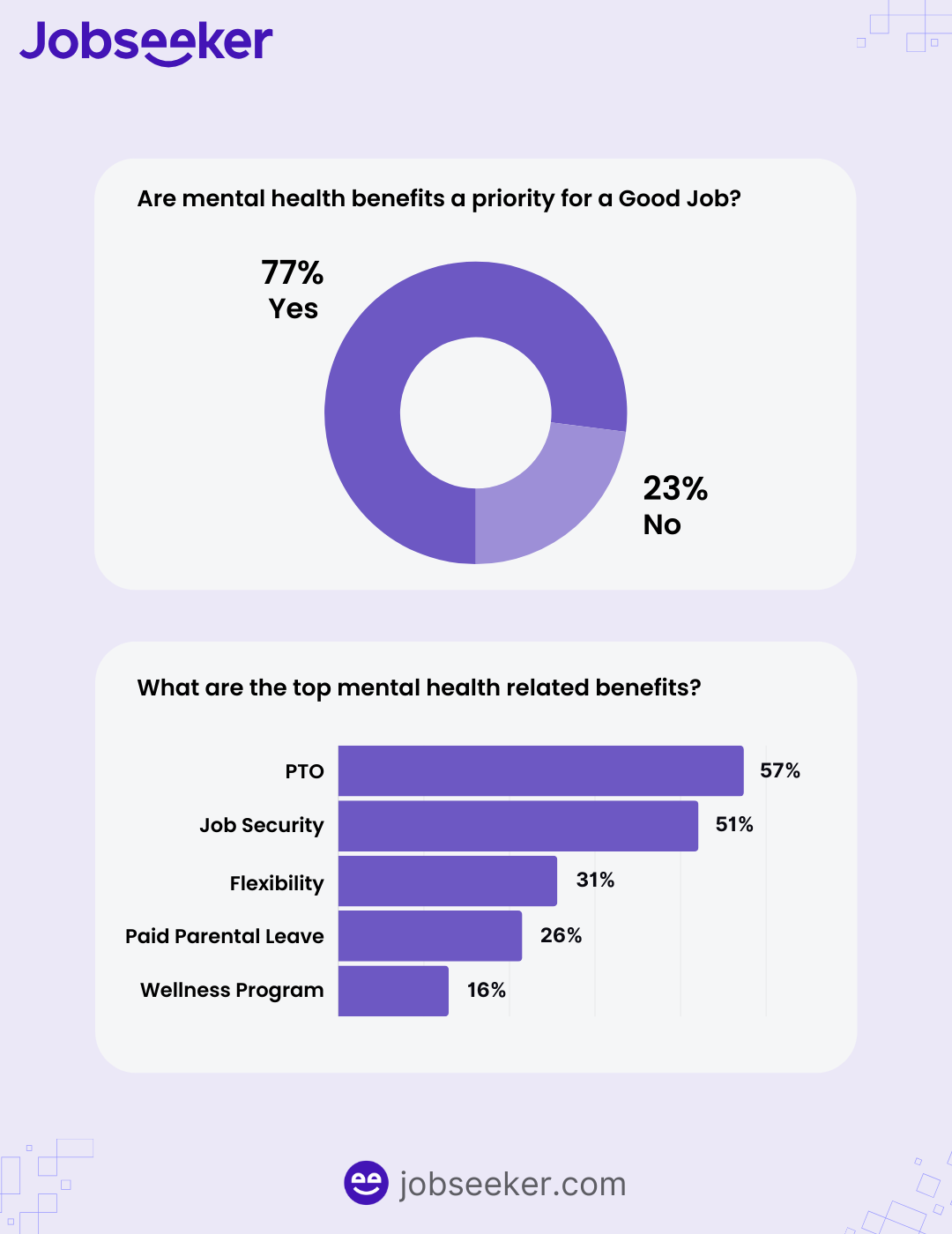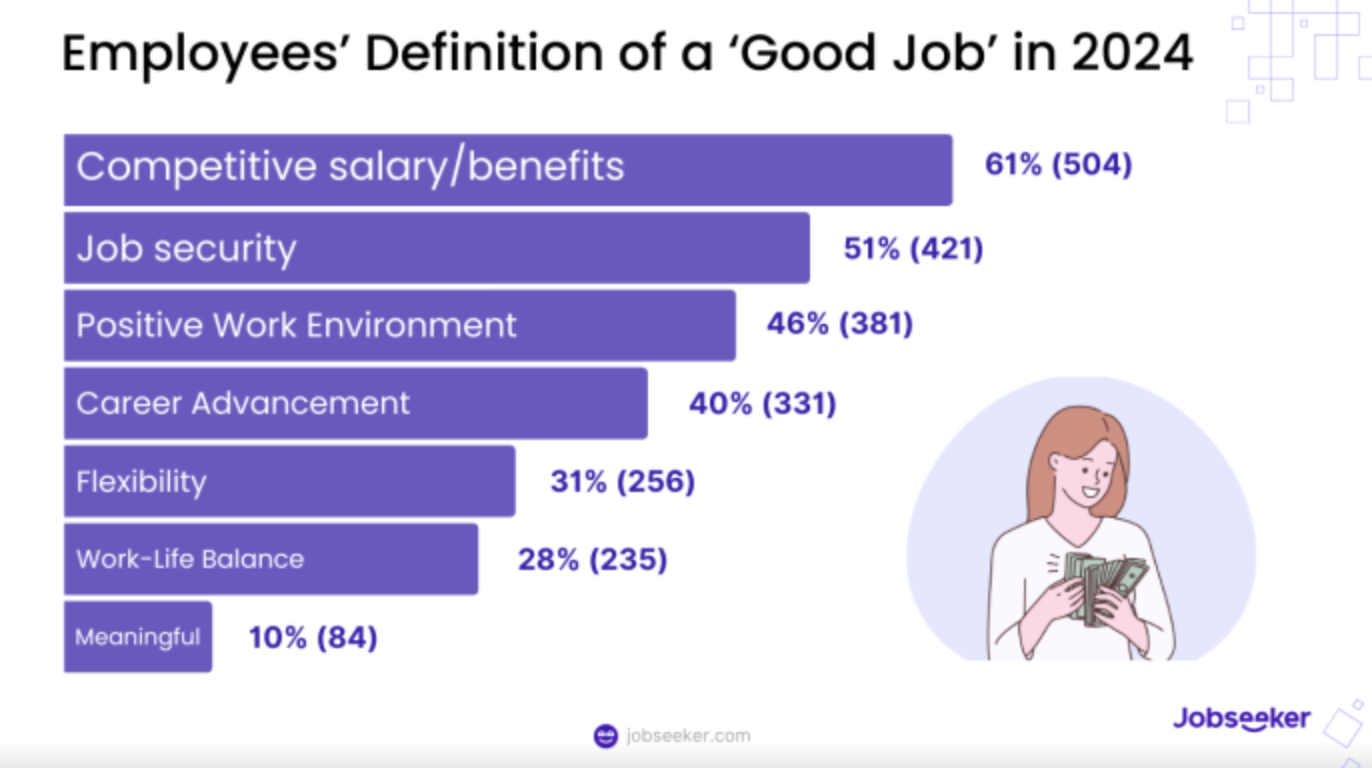
'In 2024, a 'good job' is defined by its capacity to support employee mental health'

Mental health benefits have become a defining feature of what professionals consider a "good job" in today's employment landscape, according to a recent survey by Jobseeker.
The survey gathered responses from employees across various industries and professions, finding that mental health benefits have become a crucial factor in shaping employee expectations.
According to the poll, 77% of professionals view mental health support, such as paid time off (57%), wellness programmes (16%), and parental leave (26%), as essential components of job satisfaction.

"In 2024, a 'good job' is defined by its capacity to support employee mental health, which can reduce workplace burnout and stress while improving overall productivity," the report stated.
Meanwhile, the survey also highlighted specific elements that contribute to a "good job" beyond mental health support. They include competitive salary/benefits (61%), job security (51%), and a positive work environment (46%).

Job security was identified as a priority by 55% of full-time employees, while a positive work environment was valued by 50% of women and 41% of men, according to the poll.
Additionally, work-life balance stood out as a particularly important factor for workers aged between 45 and 54, with 37% identifying it as key to their job satisfaction.
Flexibility in the workplace also played a significant role in defining a "good job," though preferences varied across industries.
Marketing professionals (50%) and those in the service industry (48%) ranked flexibility highly, whereas employees in healthcare (21%) and engineering (6%) considered it less important.
Jobseeker's poll was released in honour of World Mental Health Day, which will be celebrated on October 10.
To improve mental health in the workplace, Jobseeker outlined the following recommendations: